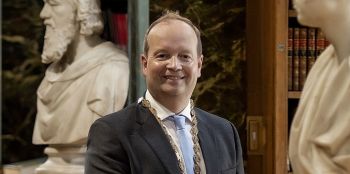Death of a bankrupt
It is a common misconception that the death of an individual means the death of their debts. This is not the case.
If a person has been made bankrupt before their death and has not been discharged (meaning released from any debts covered by the bankruptcy and the restrictions of bankruptcy being removed), then their death does not automatically bring the bankruptcy to an end. A trustee is appointed to manage the assets of a person in bankruptcy and their obligations continue until they are discharged from office.
The trustee has the power to recover, manage and realise the debtor's estate to meet the deceased’s debts as would be the case in life. Upon conclusion of the trustee's role, we would expect them to remit any surplus in their hands to the decease’s executors to deal with in terms of any Will.
Insolvent Estates
What happens if an executor is considering, or has taken office and it transpires that the deceased’s debts exceed their assets?
In this situation it is entirely competent and proper to petition for the sequestration of the deceased's estate. This could arise in a situation where a person had significant debts that were unknown by the executor in life, but at the same time had a substantial asset, perhaps in the form of heritable property.
Sequestration in such a situation is necessary to allow the property to be dealt with, debts to be paid and an executor in post to be released, or to allow the resolution of the deceased's debts where an executor has not been appointed. Executors should also be aware that the appointment of a Trustee in Sequestration protects them from claims regarding intromission without title (dealing with the deceased’s estate without proper authority) following the Trustee’s appointment.
A particular issue which arises in insolvent estates is the effect of special destinations, a feature of Scots Property law whereby title in a jointly owned property is automatically transferred from one co-owner to another upon the death of the other. The obvious question is whether or not such transfer removes the property from the reach of the deceased’s creditors.
In such a situation where the deceased co-owner was bankrupt at the time of their death, the courts have concluded that the recipient spouse becomes personally liable to their former partner's creditors to the same extent that the deceased spouse would have been.
If you are an executor or are considering whether you should take up post as one, and would like an initial discussion about the position and your options, please contact our Dispute Resolution and Litigation team.
Meet the team

Marianne Stirling
Title: Debt Recovery Manager and Accredited Debt Recovery Paralegal
Location: Glasgow













